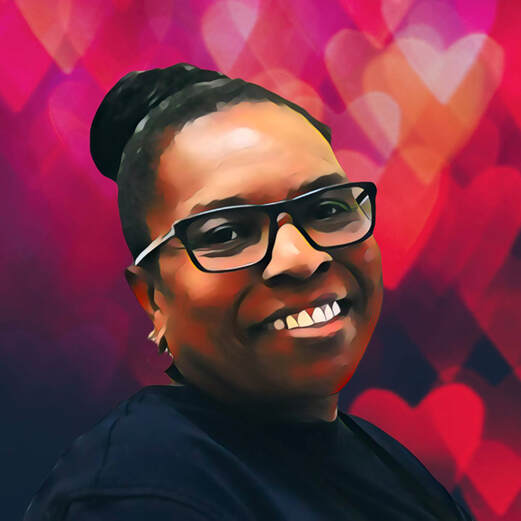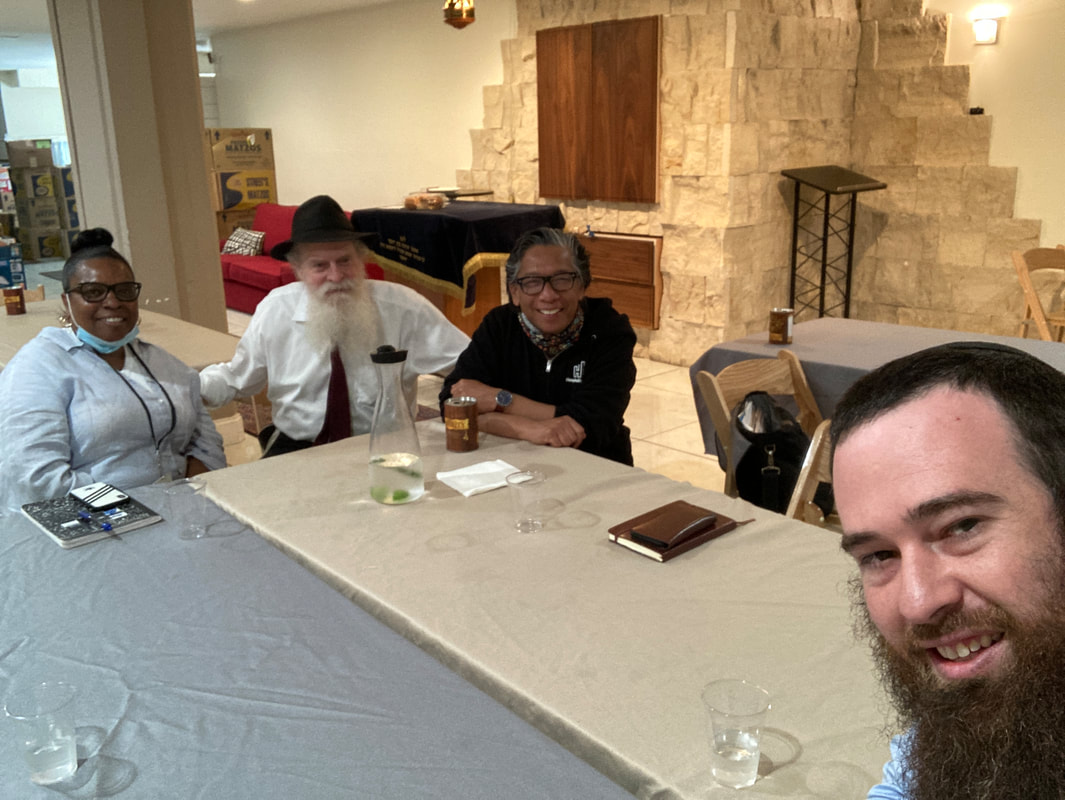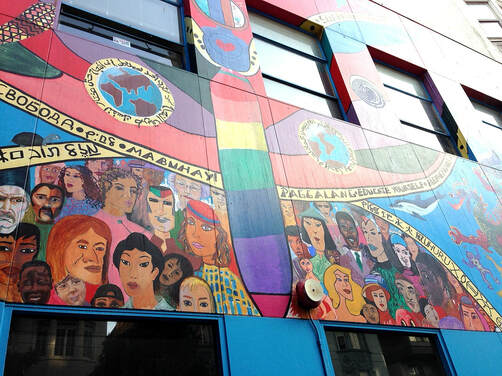IN THE HOUSE
Soul of a Dancer
Black History Is Human History
Honoring the Struggles of People of Color, Beyond February…
|
Hospitality House is proud to join in solidarity with our community partners as we celebrate Lunar New Year, Tet Nguyen Dan, and Black History Month. We recognize and honor the ancestors – as warriors and trailblazers, inventors and thinkers, revolutionaries and martyrs, artists and dreamers. Poet Warriors and Warrior Poets. The struggles of people and color reveal bonds forged in the cauldron of calamity, of inexplicable suffering – and of incandescent hope. No single month could possibly uplift all that we have been, aspire to be, and have yet to realize. Indeed, no monthly calendar could possibly document all the pain we’ve endured, nor all the troubles we’ve seen. We turn to the pages of our own collective book of days, marked by triumph and tears, of terror visited in the night, of footprints in the snow. It would be disingenuous to attempt to chronicle the hardships and triumphs of a people, which capture the essence of our human journey – that trail of tears. What has been visited upon our children within these shores, and beyond, remains a painful reminder of our shared struggle, and our continued fight to proclaim and preserve our own humanity. An estimated 1.5 million children killed in the Holocaust. Hatred and brutality beyond imagination, grief without end. Darkness. Nearly 2 million slaves died during the Middle Passage, having been forcibly removed from their ancestral home to die on the cruel seas, or as strangers in a strange land. Nearly 200 Cheyenne and Arapaho women, children and elders were massacred in Sand Creek, Colorado by US Army troops. Barbarism. More than 200 black sharecroppers in Elaine, Arkansas murdered by mobs of white vigilantes. Hatred at gunpoint. More than 110,000 Japanese Americans were forcibly removed from their homes and nearly 1900 would perish in American concentration camps. The crime of coming to America. 14 year-old Emmett Till lynched, shot, and beaten to death. A black teenager. Addie Mae Collins, Cynthia Wesley, Carole Robertson – all 14 years old. Carole Denise McNair – age 11. Four Black girls killed in Birmingham, Alabama. In church. By the KKK. Soweto, South Africa, 12-year old Hector Pieterson is among dozens of school children gunned down in cold blood by South African police. The world was horrified by Hector’s bullet-riddled body being carried by an anguished classmate. More than 200 migrants died while in US Customs and Border Patrol custody – including an infant who died while her mother screamed frantically for help. On American soil. Human beings have been stacked on top of one another – twelve deep. Children have been incinerated – alive - in ovens. Unarmed women and children shot to death in river beds. Children imprisoned in American concentration camps. School children gunned down in the street. A Black teenager lynched – then shot, then beaten beyond recognition. Children blown up as they prayed in church. Toddlers locked in cages. Our ancestors. Our fellow human beings. Our children. Black. Brown. Yellow. Red. Footprints in the snow… In March 1955, an unwed pregnant teenager named Claudette Colvin would refuse to sit in the back of a bus in Montgomery Alabama. Nine months before Rosa Parks. Movement elders considered young Claudette to be a liability. In November 1956, nearly a year after the historic Montgomery Bus Boycott began, the US Supreme Court would rule that segregation on Alabama’s bus system was unconstitutional. Five black women were the plaintiffs in the case. One of them, Claudette Colvin. More footprints in the snow… Our struggle is indeed OUR struggle. Black History is Human History. Gong Hay Fat Choy. Chuc Mung Nam Moi. Ase. SPECIAL THANKS to our THHE Auction Online Planning Committee: Braden Cerutti, Hospitality House Board Member | Francis Camaquin, Artists Liaison | Marissa D’Orazio, Arrow Events | Tess Davis, Hospitality House | Britt Henze, Artist Alejandra Hilsaca, Hospitality House | Arley Iribe, Levis Strauss & Co. | Kate Laster, Hospitality House | A. Samson Manalo, Hospitality House | Gabbi Sanchez Mallona, Zendesk | Olivia Ongpin, Luna Rienne Gallery | Maddie Putnam, Hospitality House | Maria Rocchio, Hospitality House Board | Tan Sirinumas, Community Artist | Steenalisa Tilcock, Hospitality House | Jasmine Sullivan, Artist | Cate White, Artist | Janet Williams, Hospitality House | Joseph Wilson, Hospitality House Our incredible gallery partners: Renee DeCarlo, The Drawing Room | Don Ross & Guy Campbell, an.a.log SF | Nico Schwieterman, Fleet Wood | Alexa Trevino, Artillery AG | Olivia Ongpin, Luna Rienne Gallery And our wonderful sponsors & donors: Sherilyn Adams | Tina V. Aguirre | Anonymous | Chandler Fine Arts & Framing | Jim Leigh & Debbie Callis | Brad Cerutti | Curry Senior Center | Beverly Curwen | Karen Diefenbach | Four Sisters of the Bay Area | Healing Cuts | Homeless Prenatal Program | Mary A. Kelly | Lyndsey Konrad | A. Samson & Joyce Juan Manalo | Nurture Coaching | Svane Family Foundation | Tenderloin People’s Congress | Ayni & Sean Vienna | Sandy Weil | Joseph T. Wilson | Alanna Zrimsek If you missed the YouTube broadcast of THHE Auction Online 2021, you can still watch the entire program below. We continue to accept donations to our Heart of Art Capital Campaign to establish a permanent home for our Community Arts Program. Click here to find out more and to make a donation. |
“For those who aren’t in the room…”
Celebrating Asian American and Pacific Islander Heritage Month - Remembering Yori Wada
by Joe Wilson, Executive Director, Hospitality House
|
Legendary human rights champion Yori Wada died nearly 25 years ago, leaving a legacy of achievement, and an indelible imprint on the lives of youth and adults – across generations, across neighborhoods, across races and ethnicities. Yori Wada battled injustice throughout his life. While Yori’s family was imprisoned at an internment camp in Arkansas, Yori served in the celebrated Japanese American 442nd Combat Team. Yori worked at both the Booker T. Washington Community Center and was Director of the Buchanan YMCA for nearly two decades. Yori Wada was the first Japanese-American ever appointed to the University of California’s Board of Regents in its 109-year history, the first Asian American on the City's Civil Service Commission, and he fought tirelessly for affirmative action and divestment from apartheid-era South Africa. Ahead of his time.
Yori Wada mentored and counseled youth and adults from different racial backgrounds and neighborhoods throughout San Francisco and across the state. He championed issues of the day across the political landscape throughout California on issues of juvenile justice, violence prevention, education equity and racial justice. My first meeting with Yori Wada was certainly fortuitous. He saved me from being handcuffed and taken to jail. Hard to believe, I know, but my big mouth nearly got me locked up. And would have had it not been for Yori’s timely intervention – on behalf of someone he’d only just met. In the 1990’s, the Private Industry Council was the precursor to today’s Workforce Investment Board. In those days, public comment was not allowed at Council meetings. Public meeting, public policy being set - but no public comment. So, of course, I show up and start commenting on nearly every agenda item. The first meeting, Council members humored me. The second, they admonished me. The third meeting, though, I got into an ill-advised argument with the Council Chair. Security guards escorted me out of the meeting, planning to have me arrested for trespassing. Unbeknownst to me, Yori Wada - a Council member at the time - had followed us out. Yori interceded just as the guards were phoning SFPD. “It’s ok, gentlemen,” Yori said calmly. “He’s with me.” Yori’s eyes held mine. Yori Wada's modest physical stature belied his mesmerizing presence that could be comforting or relentless - often both - depending on the situation. “Young man,” Yori began, “You’ve got heart, and you’ve got smarts. But remember this: you’re not speaking for yourself - you’re speaking for those who aren’t in the room.” Yori paused to let this sink in, then added, “It’s not enough for you to BE right. You’ve got to DO right by people who aren’t here. Don't forget that.” Solidarity is often expressed in soaring platitudes, appeals to our better angels, impassioned pleas to recognize our shared struggles. All good, all necessary. Sometimes though, solidarity bridges the racial divide with little fanfare: a subtle breeze of emotional clarity, a moment of human connection. Yori Wada – World War II hero, University of California Regent, global human rights champion, multi-generational mentor – extended his friendship, his kindness - and yes, his love to someone he'd only just met. I’ve often fallen short of Yori’s advice, but it's remained part of me for more than 25 years. Quietude amidst the noise. Along with untold thousands whom he touched, I’m forever grateful - and fortunate - for having met the esteemed Yori Wada. |







